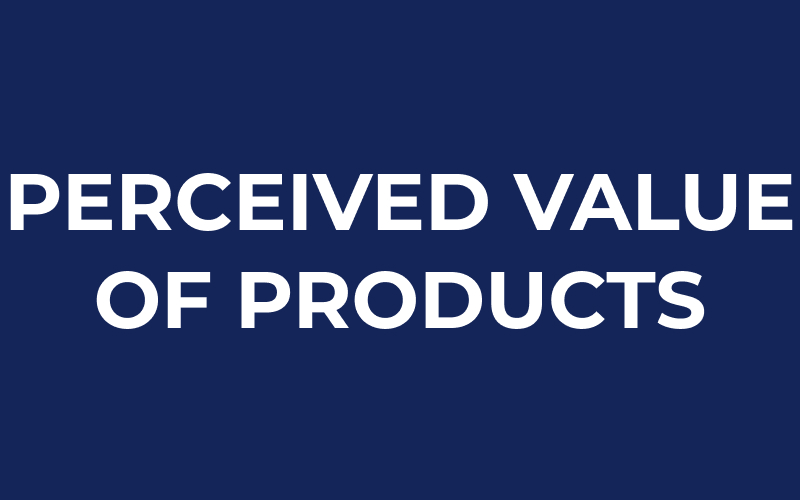
The perceived value of products
Perceived value of products refers to the value that consumers place on a product, which may not always be aligned with the actual cost of production or the price tag but rather to the subjective value that is associated with a product or service based on factors such as its features, benefits, brand, and reputation. Retailers and e-commerce businesses must understand the perceived value of their products in order to set the right price and maximize their profits.
Factors influencing the perceived value of products
As mentioned there are several factors that influence the perceived value of a product. The first is the quality of the product itself. A high-quality product is more likely to be perceived as having a high value, and this perception can justify a higher price tag. On the other hand, a lower-quality product may be perceived as having a lower value, and this perception can necessitate a lower price.
Another important factor that influences the perceived value of a product is its brand reputation. A well-known brand with a strong reputation for quality and reliability such as Rolex is more likely to be perceived as having a high value, and this perception can justify a higher price. On the other hand, a lesser-known brand or a brand with a negative reputation may be perceived as having a lower value, and this perception can necessitate a lower price.
Additionally, the packaging and presentation of a product can also play a role in its perceived value. A product that is well-packaged and presented in an attractive way is more likely to be perceived as having a high value, and this perception can justify a higher price. Apple is a good example of a brand that is regarded as a high quality brand, not only because of their brand reputation but also due to their way of packaging their products. On the other hand, a product that is poorly packaged or presented in an unattractive way may be perceived as having a lower value, and this perception can necessitate a lower price.
Finally, the availability of a product can also impact its perceived value. A product that is in high demand and in short supply is more likely to be perceived as having a high value, and this perception can justify a higher price. On the other hand, a product that is widely available and in surplus may be perceived as having a lower value, and this perception can necessitate a lower price.
Summary
Perceived value of a product is a crucial factor in pricing for ecommerce and retail businesses. It refers to the value consumers place on a product, which may not always match the actual cost or price tag. Perceived value of products is influenced by factors such as product quality, brand reputation, packaging and presentation, and availability. By considering the perceived value of products, retailers and e-commerce businesses can maximize their profits and ensure success.

